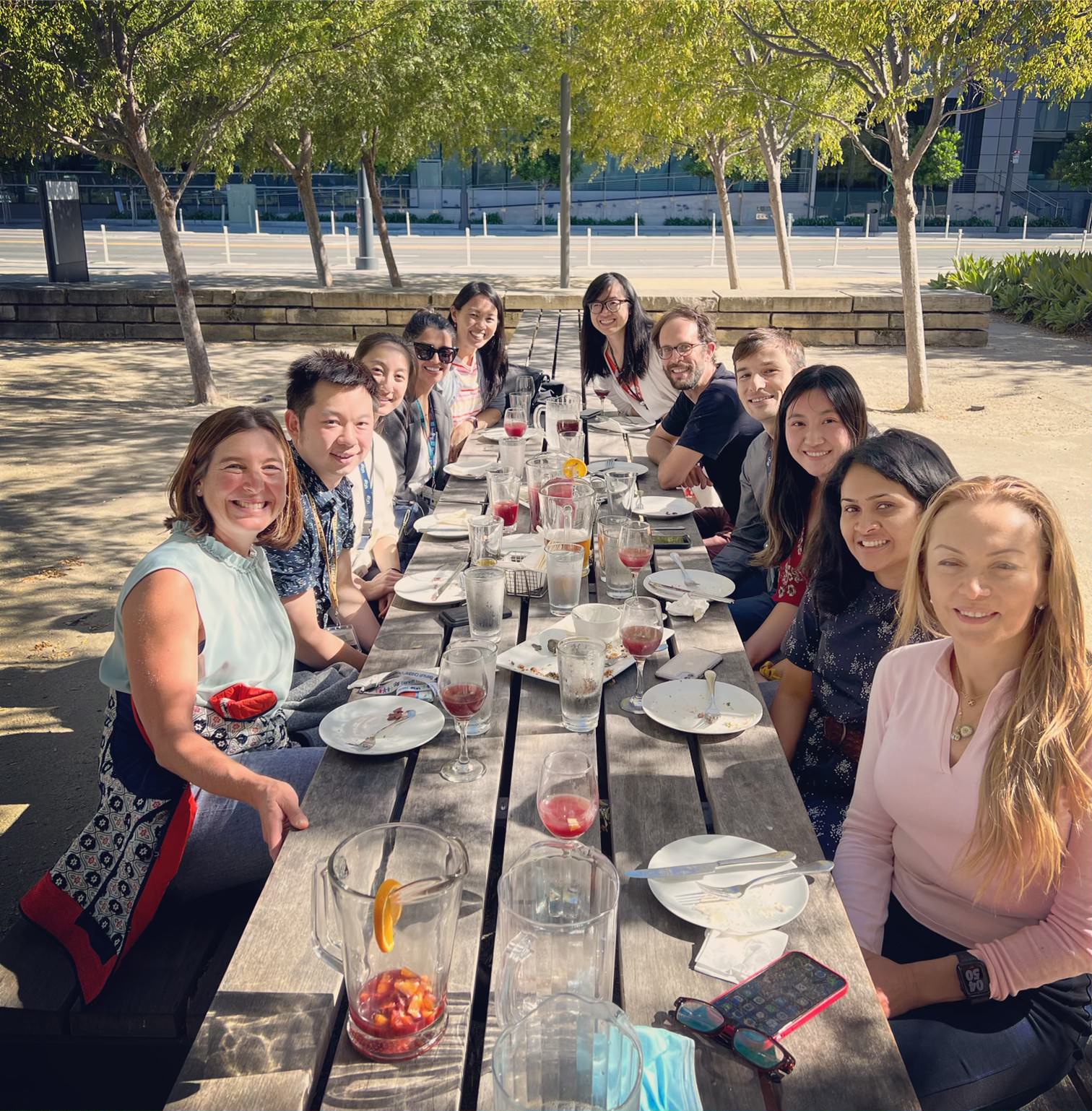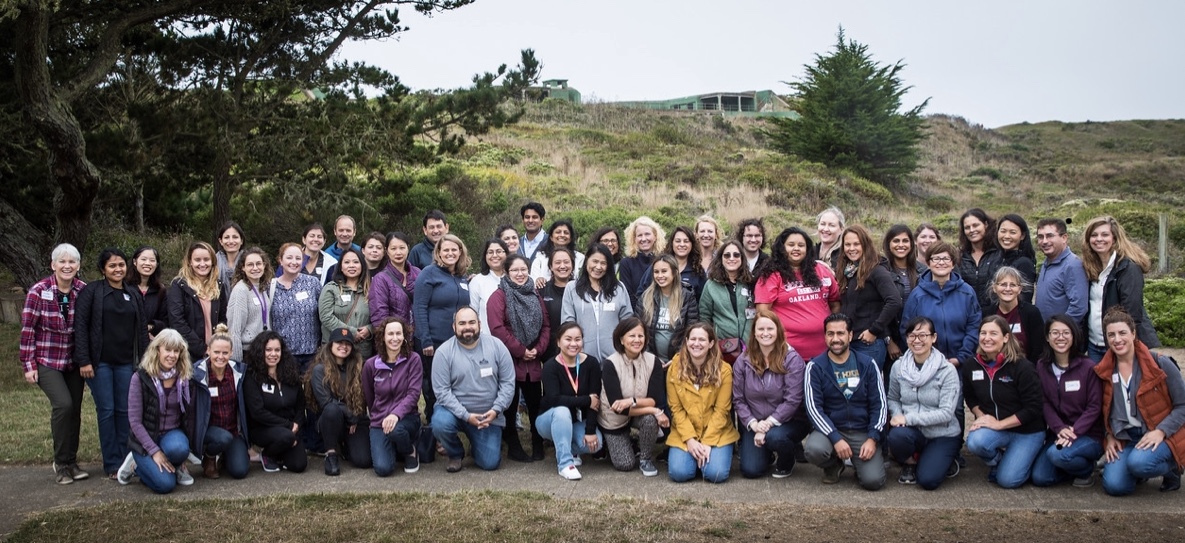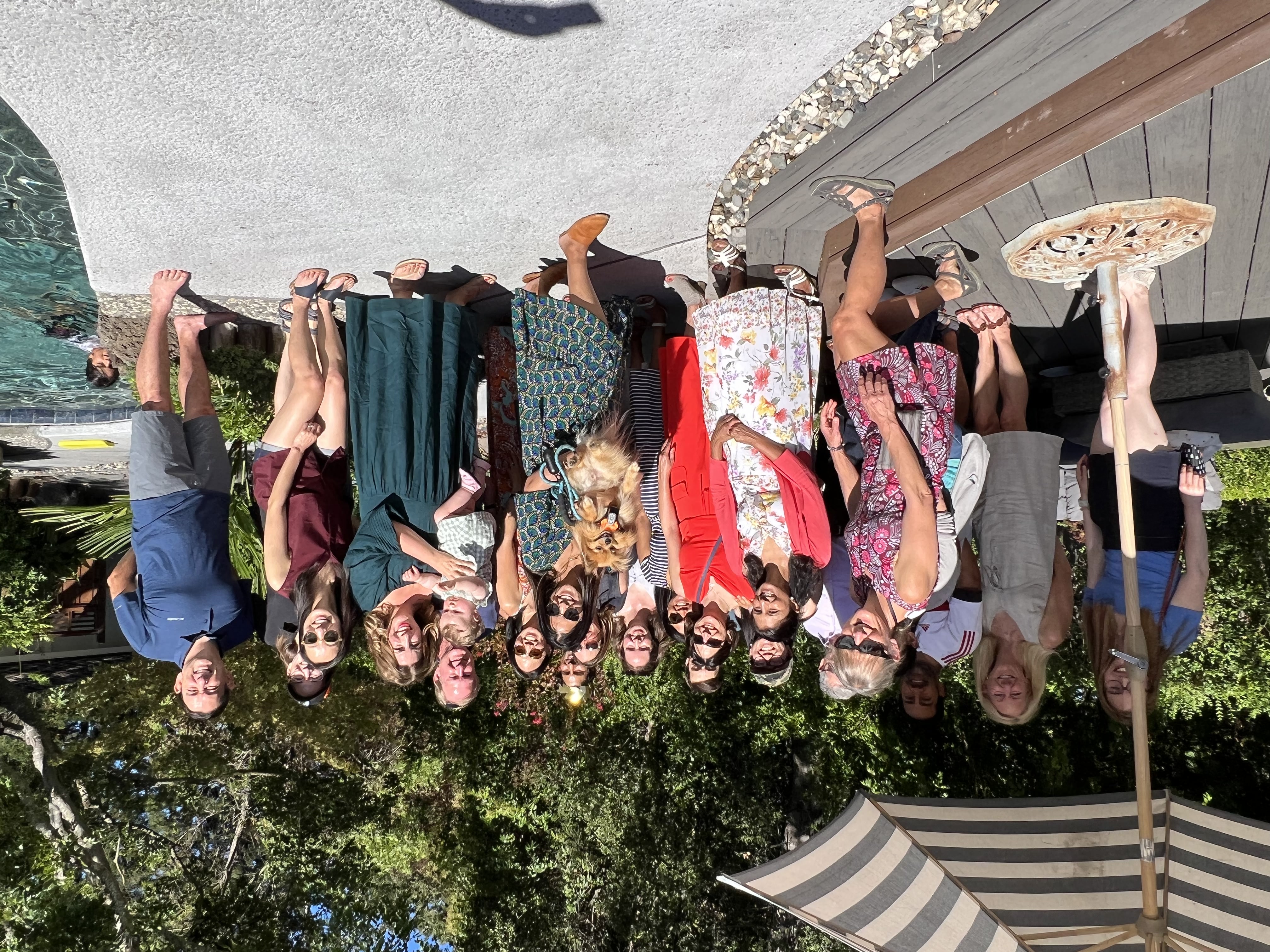Program Description
Overview of Training Curriculum
 The three-year fellowship is broken down into approximately six months of inpatient clinical experience and 30 months devoted to research and outpatient clinical experience.
The three-year fellowship is broken down into approximately six months of inpatient clinical experience and 30 months devoted to research and outpatient clinical experience.
Year 1:
The six months of inpatient experience is completed in the first year of training. Inpatient training occurs at the UCSF Benioff Children’s Hospital in San Francisco, a large quaternary care facility located in the Mission Bay neighborhood of San Francisco. During the inpatient rotation, fellows work closely with faculty members to see consults and provide diagnostic and management guidance to primary teams from all service areas (general pediatric floors, hematology/oncology, bone marrow transplant, surgical services, PICU, and NICU). In addition, fellows participate in the management of endocrine clinical research patients admitted to the Pediatric Clinical Research Center.
The remaining six months of the first year is devoted to developing a research project (see below) and participating in outpatient endocrinology clinics including our disorders of sexual differentiation, neuro-oncology, lipid, PCOS, skeletal health, gender, obesity, diabetes, and general endocrinology clinics. In all these clinics, fellows see patients with faculty supervision and are responsible for the diagnostic evaluation and management of patients.
In addition, first year fellows rotate for one month at the UCSF Benioff Children’s Hospital in Oakland, a large tertiary care children’s hospital located in Oakland, CA. The hospital’s large catchment area makes it the largest diabetes center in all of Northern California for both type 1 and type 2 diabetes. There are six full time clinical pediatric endocrinologists as well as a lipidologist. Specialty clinics available on the Oakland campus include a pre-diabetes clinic, a lipid clinic, and a gender clinic. Being one of a few centers of excellence for thalassemia care in hematology, there are also endocrinologists involved in the comprehensive thalassemia care team on the Oakland side that are researching and managing the endocrine disorders that occur from iron overload. The goal of the fellowship rotation on the Oakland campus is to build the fellow’s diagnostic, assessment, and management skills in both the inpatient and outpatient settings. Given the high volume and diversity of the patients, there are ample opportunities to see a wide variety of pathology and manage common endocrinopathies.
Years 2 and 3:
The second and third years of fellowship are devoted to completing the fellow’s scholarly activity (i.e. research project) and gaining additional experience with outpatient endocrinology. Second and third year fellows cover the inpatient service up to two weeks per year and occasional weekends to provide time off to the first year fellows. Senior fellows are expected to participate in at least one half-day per week of outpatient continuity clinic (typically two endocrinology clinics and two diabetes clinics per month) during their second and third year. These continuity clinics will provide a longitudinal care experience to prepare fellows for their own clinical practice.
Scholarly Activity
To become certified as a pediatric endocrinologist, the American Board of Pediatrics requires each fellow to complete a scholarly activity during fellowship. Our fellows’ projects have ranged from patient-oriented clinical research, to quality improvement, to laboratory research. Laboratory and clinical research may occur under the mentorship of pediatric endocrinology faculty members or any faculty member at UCSF, providing the fellow immense flexibility to explore their interests. The Department of Pediatrics coordinates Fellows’ College for all subspecialty pediatrics fellows, which includes a skills development workshop series, and guidance on scholarly work from each fellow’s Scholarship Oversight Committee (SOC). The SOC works with the fellow, the program directors, and the fellow’s mentors to develop an Individual Development plan (IDP) to guide research and clinical activities. The rich investigative environment of UCSF cannot be overstated and can be immensely beneficial to fellows no matter their career choice.
scholarly activity during fellowship. Our fellows’ projects have ranged from patient-oriented clinical research, to quality improvement, to laboratory research. Laboratory and clinical research may occur under the mentorship of pediatric endocrinology faculty members or any faculty member at UCSF, providing the fellow immense flexibility to explore their interests. The Department of Pediatrics coordinates Fellows’ College for all subspecialty pediatrics fellows, which includes a skills development workshop series, and guidance on scholarly work from each fellow’s Scholarship Oversight Committee (SOC). The SOC works with the fellow, the program directors, and the fellow’s mentors to develop an Individual Development plan (IDP) to guide research and clinical activities. The rich investigative environment of UCSF cannot be overstated and can be immensely beneficial to fellows no matter their career choice.
Fellows may take courses in the graduate division in cellular and molecular biology, statistics, and clinical research. Fellows seeking formal training in clinical research can take coursework through UCSF’s graduate division in clinical epidemiology and biostatistics and the Training in Clinical Research (TICR) program. Opportunities through TICR include the Summer Clinical Research Workshop, the Advanced Training in Clinical Research (ATCR) certificate program, the Master's Degree Program in Clinical Research , and the Implementation Science program. The Master’s Degree Program in Clinical Research at UCSF is broadly recognized as one of the best and most rigorous programs of its kind in the nation.
Fellows also have opportunities to participate in formal educational and professional development programs offered through the UCSF School of Medicine Graduate Medical Education (GME) division. These include GME Pathways (Clinical Informatics and Data Science, Global Health, Health Equity and Racial Justice, Health Professions Education, or Health Systems Leadership) and the Residents and Fellows Leading Interprofessional Continuous Improvement Teams (REFLECT) quality improvement incentive program.
Mentoring
 Our program believes that strong mentoring relationships contribute to a successful and rewarding fellowship experience. At the start of the first year of fellowship, fellows are assigned a career mentor, separate from the program director or research mentor. The career mentor meets with the fellow quarterly to review career goals and discuss professional interests and development in an informal environment. In addition, fellows meet with the associate program directors quarterly to review their individualized learning plan and research projects. Finally, all fellows meet with the program director on a semi-annual basis to review their overall progress. These meetings not only allow fellows to receive ongoing guidance on their professional development but also allow fellows to provide feedback to the program. To maximize the efficacy of mentoring sessions, all faculty take courses in diversity, equity, and inclusion and receive coaching on delivering feedback.
Our program believes that strong mentoring relationships contribute to a successful and rewarding fellowship experience. At the start of the first year of fellowship, fellows are assigned a career mentor, separate from the program director or research mentor. The career mentor meets with the fellow quarterly to review career goals and discuss professional interests and development in an informal environment. In addition, fellows meet with the associate program directors quarterly to review their individualized learning plan and research projects. Finally, all fellows meet with the program director on a semi-annual basis to review their overall progress. These meetings not only allow fellows to receive ongoing guidance on their professional development but also allow fellows to provide feedback to the program. To maximize the efficacy of mentoring sessions, all faculty take courses in diversity, equity, and inclusion and receive coaching on delivering feedback.
Conferences and Curriculum
Our program’s approach to teaching balances didactic instruction with fellow-driven learning. All fellows receive intensive didactic teaching early in the first year by attending a summer lecture series given by the adult endocrine division and a separate series of pediatric-specific topics delivered by the pediatric endocrinology faculty. These lectures are meant to be a “crash course” in commonly encountered endocrine problems seen on the inpatient service or during outpatient rotations. In addition, the division’s faculty run a lecture series covering foundational topics in pediatric endocrinology that follows the American Board of Pediatrics content outline for pediatric endocrinology. The goal is to cover the content outline over a three-year period.
didactic teaching early in the first year by attending a summer lecture series given by the adult endocrine division and a separate series of pediatric-specific topics delivered by the pediatric endocrinology faculty. These lectures are meant to be a “crash course” in commonly encountered endocrine problems seen on the inpatient service or during outpatient rotations. In addition, the division’s faculty run a lecture series covering foundational topics in pediatric endocrinology that follows the American Board of Pediatrics content outline for pediatric endocrinology. The goal is to cover the content outline over a three-year period.
At the same time, we ask our fellows to be active in their own education. Fellows and faculty attend weekly clinical educational conferences, which include journal clubs, sessions on continuous process improvement (quality improvement and Morbidity and Mortality conferences), and research conferences. Fellows run our weekly divisional case conference where interesting and challenging inpatient and outpatient cases are presented and discussed. These conferences bring together all faculty and fellows and create outstanding discussions about pathophysiology and management of various endocrine disorders. In addition, pediatric endocrine fellows, along with pediatric urology fellows, present cases at our monthly disorders of sexual differentiation clinic. Fellows attend the weekly Endocrine Grand Rounds series which features both local and guest speakers from medicine, pediatrics, reproductive endocrinology, and the basic sciences, can join a weekly reproductive endocrinology seminar series, and present at monthly joint pediatric/adult/reproductive endocrine “mini” grand rounds.
Funding
Between departmental funds and our NIH T-32 training grant, the division guarantees a fellow’s funding for all three years of fellowship. Fellows are encouraged to apply for grants and other awards during their time here.
Benefits
All fellows receive 4 weeks (20 business days) of vacation a year. Salary and benefits are standardized across the university. Benefits information can be found here. Salary information as well as other trainee financial resources can be found here. An additional housing stipend is also provided to all fellows (~$1000/month).
Combined Training in Adult and Pediatric Endocrinology
We have a long history of training internal medicine-pediatrics residents in both adult and pediatric endocrinology. Accepted trainees generally complete their clinical training in their first two years followed by two years of research. Fellows are eligible to sit for the endocrinology boards from the American Board of Internal Medicine and the American Board of Pediatrics.
Program Leadership
Srinath Sanda, M.D.
Fellowship Program Director
[email protected]
Shylaja Srinivasan, M.D., M.A.S.
Associate Program Director
[email protected]
Jenise Wong, M.D., Ph.D.
Associate Program Director
[email protected]
Tariq Ahmad, M.D.
Associate Program Director
[email protected]
Twinkle Patel, M.P.A.
Fellowship Program Coordinator
[email protected]
Susan Untalan
Administrative Assistant
[email protected]
